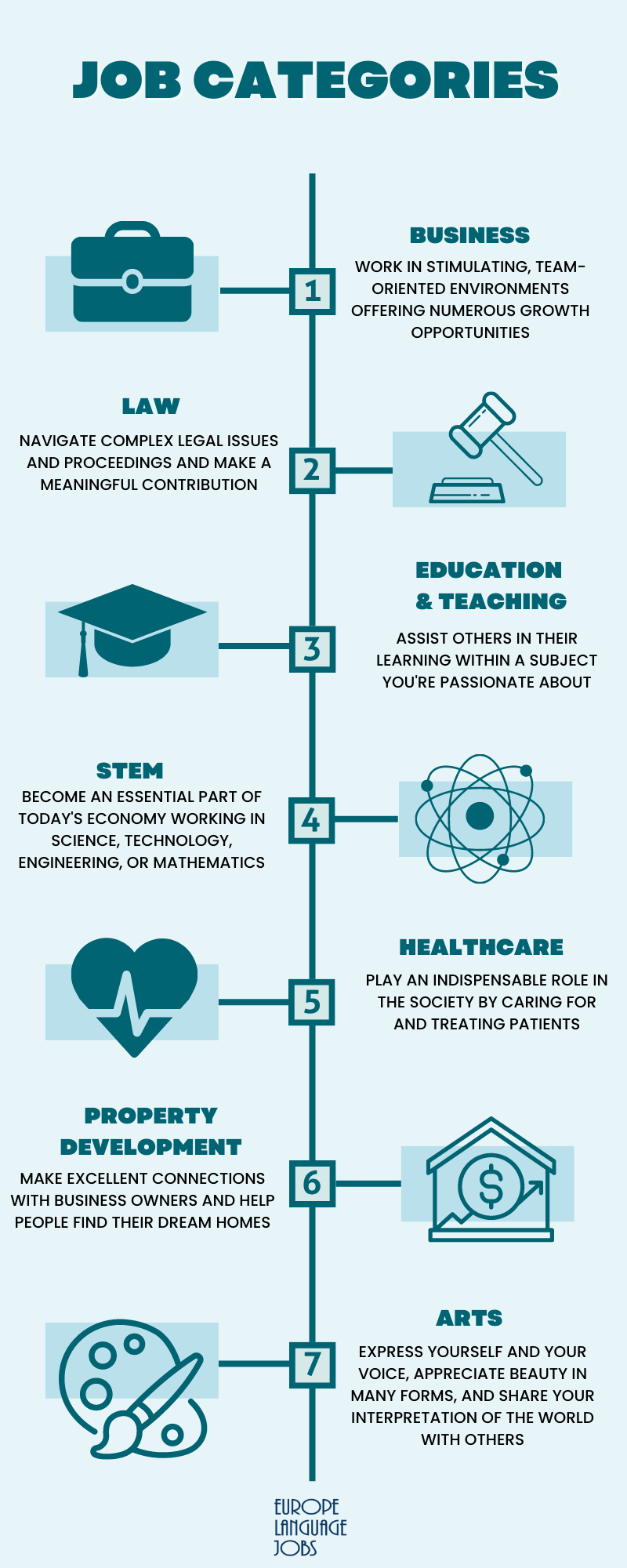Choosing a career is an important decision that will shape our lives for many years. With so many decisions to make about your future, it can be difficult to figure out which paths to take.
Evaluating your interests and thinking about potential options are key steps in the process. Taking the time to research careers and exploring possible job opportunities can help give you a head start.
Parents and teachers play a key role in helping children decide on an educational path and prepare for the future. You may want to consider talking with mentors or joining professional community networks to gain more insight into fields that interest you.
According to the Bureau of Labor Statistics, the average person in the U.S. holds 11.9 jobs in their lifetime.
Additionally, while considering your options and striving for success are important, don’t forget to prioritize self-care and balance throughout this journey.
1. Identify Your 5 Greatest Personal or Social Strengths
2. Discuss Career Options with Your Upper School Counselor
4. FAQs About Applying to College
Identify Your 5 Greatest Personal or Social Strengths
When choosing the right academic path in upper school, it is always important to identify your greatest personal or social strengths to ensure you are heading in the right direction. Taking a personal inventory and evaluating your strengths can help inform sound decisions that will serve as a foundation for a successful future.
Knowing your triggers and boundaries, communication styles and natural talents can go a long way toward making the right choice. However, it is also important to remain aware of how external factors may shape your decision-making process.
These include the opinions of family members, friends or teachers interested in helping you make the best possible decision. Ultimately, determining which qualities you value most highly will help you make the best choice for yourself and allow you to excel within an educational system that welcomes students from all walks of life.
Discuss Career Options with Your Upper School Counselor
It’s no secret that high school can be a pivotal point in achieving success; your decisions can now shape your future trajectory. Therefore, it is important to consider making the right academic path choices during this critical time.
One way you can do this is by talking with your school counselor to gain insight into your career options. Then, your counselor can guide what to watch when selecting classes and activities based on the jobs or industries that might interest you.
They may even have experience in your desired field that can help inform you about the demands of such a life path. As a bonus, they generally have close connections with college admissions departments too!
So don't forget, when aiming to make well-informed decisions regarding academic paths, be sure to speak with your school counselor - they are here to assist you every step of the way!
Job Categories
When considering a job or a career, it’s important to know what kind of skills and education you need to apply. Many jobs and careers may fit into various categories, from customer service to finance, human resources to marketing, and engineering to healthcare.
This guide can help narrow down the options by providing an overview of some general job groupings to understand better the paths you could explore based on your preferences and desired qualifications. Deciding your future should be an informed process; allow this guide to provide clarity as you explore the possibilities available with each type of job.

Major job categories include:
1. Business
2. Law
4. STEM
5. Healthcare
7. Arts

1. Business
Business professionals occupy pivotal roles across various industries and help drive company success. In addition, they often work in stimulating, team-oriented environments that offer ample opportunity for growth and development.
Among the business careers are the following:
-
Accounting
-
Human resources
-
Finances
-
Management
-
Advertising
-
Taxes
-
Business ownership
-
Logistics
With an ever-evolving world economy, many college and university students today are choosing to major in business. This major offers graduates the opportunity to have a strong understanding of how different industries work and understand the potential for new market opportunities.
To succeed in this field, individuals must be able to analyze risk, thrive under pressure and take on challenges with resilience. Furthermore, success in the business industry requires creative thinking and the development of ideas to drive businesses forward and maximize profitability.
As such, it's no wonder that business is one of the most popular majors on campus; it's a fascinating field with a wide range of prospects for career growth.

2. Law
Becoming a lawyer is no easy feat, but it can offer tremendous rewards if you're willing to do the work. It starts with an undergraduate degree and continues with law school and the bar exam before you are sworn into practice.
High pay is only one of benefits; a lawyer provides essential services to their clients as they navigate complex legal issues and proceedings. If you decide to become a lawyer, there are many areas of law to which you can specialize - from criminal justice and family law to immigration law.
The key is finding an area that sparks your interest so that you can make a meaningful contribution as a legal professional.
A successful lawyer requires more than just knowledge of legal documents and code. It requires a talent for communicating with people through exceptional writing and public speaking.
A lawyer's work also involves being able to think on their feet as they appear in court, dissecting arguments quickly while under immense pressure. But, above all, lawyers must be able to bolster the trust of their clients knowing that the decisions they make could affect someone's life irrevocably: an incredibly important responsibility that should not be taken lightly.
All these skills require hard-won experience and dedication, ensuring those fortunate enough to practice law have worked hard for their success.

3. Education and teaching
The operation of society depends on the career field of schooling. Therefore, the most obvious way to enter the field of education is to become a teacher.
Since all instructors must obtain certification to teach at the K–12 level, you should research the certification choices available in your state or region if you wish to become a teacher. For example, it could entail working as a student teacher in a classroom and completing one or more certification exams, such as the Praxis, CSET & CBEST, or TExES.
People who enjoy working with children, are passionate about a certain subject, and appreciate assisting others in their learning might consider careers in education. Strong public speaking abilities, a high degree of empathy, and the capacity for adaptability are all traits of effective teachers.
In addition, understanding the cultural and personal differences pupils may have and having the skills to deal with such differences healthily and productively are requirements for all education-related occupations.

4. STEM (science, technology, engineering, and mathematics)
STEM jobs play a huge role in the current economy, and this is only expected to continue in the years ahead. However, because STEM covers such a vast range of industries and occupations, it can be hard to make sweeping generalizations about its growth potential.
Jobs that fall under the umbrella of STEM range from computer programmers to electricians, meaning there could be increases or decreases for specific roles that don't necessarily reflect job growth. It's important for prospective students or job seekers researching STEM opportunities in the future to understand this complexity rather than relying on blanket statistics.
With an understanding of which sub-fields offer the most attractive long-term prospects, they'll be better placed to make informed career decisions at every step.
A career in a STEM field is the perfect choice for people with a passion for knowledge, analytical minds, and the creativity to come up with clever solutions. Scientists make amazing contributions by helping us better comprehend the planet and the cosmos, while technology professionals are essential for our technologically-driven society.
And for those keen on mathematics and process-oriented thinking, engineering offers an opportunity to be involved in building systems, structures, and key elements of your community's infrastructure. So if you're looking for a field that uses your skills and allows you to help others simultaneously, then the possibilities of pursuing careers in STEM are endless!

5. Health care
Health care workers play an indispensable role in contemporary society by caring for and treating individuals with acute and chronic conditions. If you want to pursue a career in the health care field, becoming a nurse is a great option.
With a nursing degree, you can specialize as a nurse practitioner, traveling nurse, or a surgical nurse. But before any of that can become your reality, you will need extensive training that could take several years.
This journey will involve taking exams such as the TEAS, HESI, and NCLEX, assessing your competencies pre-education and throughout your educational experience. But, if you have your sights set on being a healthcare professional, the time to start is now!
Working in health care can be an incredibly rewarding career for those with the right set of skills. Attention to detail, curiosity, empathy and the ability to remain calm under pressure are just a few characteristics required for a successful medical professional.
Medical research analysts and lab technicians are a great choice for those looking to apply their analytical skills while still helping others. Not only will you have the opportunity to study data and come up with groundbreaking conclusions but you will also have the satisfaction of knowing that your work is making a positive impact on society.
With jobs in health care leading to fulfilling personal relationships and meaningful academic achievements, it’s no wonder so many have made it their career path.

6. Property development
No matter where you live, everybody needs places to call home. Property development is important in ensuring everyone has access to safe and reliable housing or workplace.
People who want to join the field of property development can choose from many different careers such as real estate, contract construction and architecture. Real estate agents are especially in demand since they are needed worldwide, not just locally.
Successful property development often means having good realtors with experience working in a certain area and making excellent connections with business owners and buyers/sellers. Realtors should be prepared to pass a real estate exam upon applying for their license.
Still, there are many great rewards for aspiring professionals looking for a career change or beginning their venture into this industry.
Property development jobs provide great opportunities for anyone who wants to create positive living environments and use problem-solving skills in their job. It also offers a chance to participate in the physical construction process, which can be satisfying for many people who like to work with their hands.
While understanding construction practices, sustainable design, and economics is extremely useful for getting into property development, the other key element needed is a passion for what you’re doing. Property development isn't just a job – it's an opportunity to make lasting changes that people will benefit from long after you've moved on!

7. Arts
The arts and humanities are incredibly diverse fields, encompassing everything from visual arts and graphic design to communication, literature, philosophy and history. Dedicated professionals in these fields daily pursue careers that enrich us all.
Their work helps us express ourselves and our voices, interpret the world around us, understand others more deeply, and appreciate beauty in its many forms. As we continue through the 21st century, the value of these professions only increases as each area provides a unique perspective to the ever-changing context of life.
Professions in the fine and applied arts include:
-
Poet or writer
-
Visual artist (painter, sculptor, illustrator, etc.)
-
Actor
-
Filmmaker
-
Dancer
-
Musician
Humanities-related careers include:
-
Writer
-
Journalist
-
Librarian
-
Historian
-
Social worker
-
Sociologist
-
Research assistant
-
Publisher
FAQs About Applying for College
What are the benefits of exploring career paths in upper school?
Exploring potential career paths in high school is an excellent way to start planning for the future. Students can try out various activities, courses and electives which will help them identify their interests and strengths and provide a meaningful opportunity to learn more about the world of work.
Through exploring career paths in high school, students can gain experience through internships or shadowing experts in the field they are considering. It also helps narrow down decisions on further education courses after graduation.
Exploring career paths provides a unique platform for individuals to gain essential life skills that can be used well into adulthood. This includes:
-
problem-solving
-
teamwork
-
resilience and communication
All important qualities that make graduating students stand out.
What resources are available to help me choose the right academic path in upper school?
It's important to remember that the resources available to help you choose the right path are vast. Your upper school guidance counselor is an excellent first source of assistance. They can provide personalized advice and help you make an informed decision about courses that fit your abilities, interests, and future plans.
Additionally, many websites provide free information about the college admissions process and what classes may be needed for certain college programs. Upper schools often offer opportunities for students to learn more about their curriculum and instructional methods before making their final choice.
If you're considering applying to college and want to ensure your application stands out, consider using admissions editing services to refine your essays and other application materials.
With so many resources at your fingertips, making an informed decision about your academic path doesn't have to be overwhelming!
How can I best prepare for a successful career?
Preparation is key to a successful career.
-
One of the best ways to get ready is to assess your strengths, weaknesses, and interests.
-
Next, consider what job would best fit you and understand the requirements needed.
-
Once you've identified your dream career, create actionable and achievable goals, such as taking classes or obtaining certifications related to the field.
-
Networking can be invaluable in making connections with potential employers and could help you grab opportunities before they're advertised.
-
Finally, research companies that interest you and practice key interviewing skills to perfect your approach to an interview.
With these steps combined, building a successful career will become more obtainable through dedication and hard work.
Feeling inspired? Visit our blog for more career advice! How can you be sure the information we provide is top-notch? We are a group of professionals working with recruiters, career coaches, and HR specialists from all over the world!
Trust our experience and let us help you find a new job in Europe!








Lady Laura Alarcon 1y ago
It is important to give us education to advance at the business level, so that the company also wins with good results
It is important to give us education to advance at the business level, so that the company also wins with good results